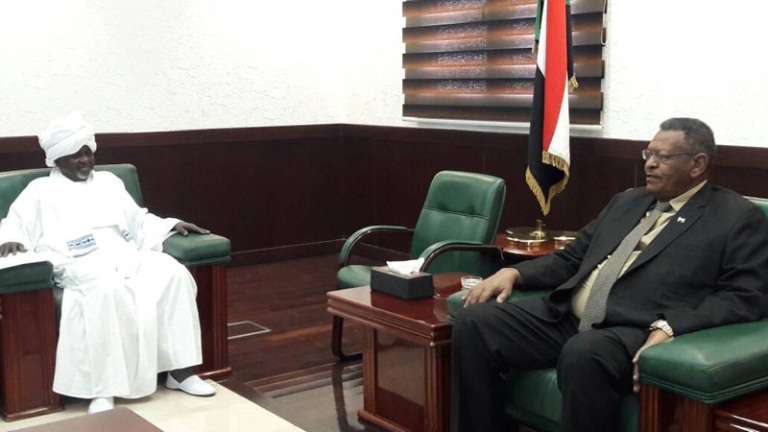Sudan’s PCP hands over names of candidates for upcoming government

May 2, 2017 (KHARTOUM) – The Secretary-General of the Popular Congress Party (PCP) Ali al-Hag Mohamed Tuesday discussed with the Prime Minister Bakri Hassan Salih the recent political developments and handed him over the list of his party’s candidates for the upcoming government of national concord.
The PCP list included only names of candidates for federal ministries and members of the national legislature but not the candidates for regional posts.
According to Al-Tayyar newspaper on Tuesday, the PCP will get the ministries of industry and international cooperation besides the state ministry of communication and the presidential aide post.
Following his meeting with the prime minister, al-Hag said the list of their candidates for the regional posts will be handed over later, saying the names of the latter will be nominated by the PCP regional offices.
He described the participation of the PCP in the upcoming government as “symbolic”, saying they would bear large responsibility according to the outcome of the national dialogue regarding issues of health, education and standards of living.
The government of national concord is expected to be announced this week.
Following a heated internal debate over participation in the upcoming government, the PCP confirmed it will take part in the government of national concord.
The Islamist party had earlier threatened to not participate in the government after the parliament passed constitutional amendments retaining powers of the National Intelligence and Security Services (NISS).
It is noteworthy that the PCP, founded by the late Islamic leader Hassan al-Turabi, splinted from the ruling National Congress Party (NCP) since 1999, and joined the opposition ranks since that time but it supported the national dialogue process declared by al-Bashir in 2014 and participated in all its forums.
Since January 2014, Sudan’s President Omer al-Bashir has been leading a national dialogue process whose stated aims are to resolve the armed conflicts, achieve political freedoms, alleviate poverty and the economic crisis, and address the national identity crisis.
Last October, the political forces participating in the national dialogue concluded the process by signing the National Document which includes the general features of a future constitution to be finalised by transitional institutions.
The opposition groups boycotted the process because the government and the armed groups failed to sign a humanitarian truce and also due to Khartoum refusal to implement a number of confidence building measures aiming to create a conducive environment in the country before to hold the inclusive dialogue.
(ST)
